Canadian Jewish Entertainers
Lorne Michaels (b. 1944) – Television & Comedy
Contribution: Creator of Saturday Night Live (SNL) and influential television producer.
Time Period: 1970s–present

Impact: Lorne Michaels revolutionized television comedy by creating Saturday Night Live (SNL) in 1975, a show that has launched the careers of countless comedians, including Dan Aykroyd, Mike Myers, Adam Sandler, and Tina Fey. SNL has become a cultural institution, shaping political satire, sketch comedy, and social commentary in the U.S. and Canada. Michaels’ influence extends beyond SNL—he has produced The Kids in the Hall, Late Night with Conan O’Brien, and 30 Rock, shaping North American comedy for nearly five decades. His mentorship of Canadian and Jewish comedians has ensured their success in Hollywood, making him one of the most powerful figures in television history.
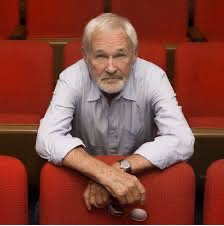
Norman Jewison (b. 1926 – d. 2022) – Filmmaker & Director
Contribution: Acclaimed filmmaker behind Fiddler on the Roof, Moonstruck, and In the Heat of the Night..
Time Period: 1950s–2020s
Impact: Norman Jewison was one of Canada’s most celebrated directors, known for tackling themes of social justice, race, and Jewish identity. His adaptation of Fiddler on the Roof (1971) brought Jewish culture and storytelling to a global audience, influencing musical theater and film. His Oscar-winning films like In the Heat of the Night addressed civil rights issues, proving that Hollywood could drive social change. Jewison also founded the Canadian Film Centre, supporting young filmmakers and the growth of Canada’s film industry.
Evan Goldberg (b. 1982) – Screenwriting & Producing
Contribution: Co-writer/producer of Superbad, This is the End, The Boys.
Time Period: 2000s–present

Impact: As Seth Rogen’s longtime writing partner, Evan Goldberg has been the driving force behind some of the biggest comedy films of the 21st century. His work on Superbad and Pineapple Express helped reshape modern buddy comedies, while his production of The Boys transformed superhero storytelling into a darker, more satirical genre. Goldberg has also contributed to video game adaptations, working on projects related to Teenage Mutant Ninja Turtles and comic book-based properties. His ability to blend Jewish cultural references with mainstream humor has helped redefine comedy and action genres in Hollywood.

Eugene Levy (b. 1946) – Acting & Comedy
Contribution: Star of Schitt’s Creek, American Pie, and longtime comedic actor.
Time Period: 1970s–present
Impact: Eugene Levy is a pioneer in Canadian sketch comedy and sitcoms, gaining early fame in SCTV, a groundbreaking Canadian comedy show. His role in American Pie introduced a memorable, warm, and quirky Jewish father figure to a mainstream audience, making him a beloved comedic icon. However, his greatest impact came with Schitt’s Creek (co-created with his son, Dan Levy), which became an international phenomenon. The show’s representation of LGBTQ+ characters, Jewish identity, and intergenerational relationships reshaped modern sitcoms and won multiple Emmy Awards, proving that Canadian talent can dominate global television.
Dan Levy (b. 1983) – Writing, Acting & Producing
Contribution: Co-creator of Schitt’s Creek, actor, writer, and LGBTQ+ advocate.
Time Period: 2010s–present

Impact: Dan Levy redefined modern television storytelling with Schitt’s Creek, which became one of the most critically acclaimed comedies of the decade. His work on the show introduced a groundbreaking portrayal of LGBTQ+ relationships, free from trauma and stereotypes, making it a milestone for queer representation in television. As a proud Jewish Canadian, Levy has used his platform to promote diversity, inclusivity, and progressive storytelling. His influence continues as he expands into feature films, reality TV, and new scripted projects, ensuring Canadian Jewish voices remain a part of Hollywood’s future.

Howie Mandel (b. 1955) – Television & Game Shows
Contribution: Host of Deal or No Deal, America’s Got Talent, comedian, and actor.
Time Period: 1980s–present
Impact: Howie Mandel has had a multi-decade career spanning stand-up comedy, acting, voice work, and reality television. He was the voice of Bobby in Bobby’s World, a beloved 90s animated show that influenced children’s programming. As the host of Deal or No Deal, he helped popularize game shows in the digital era, making the format engaging for a younger audience. His long-standing role as a judge on America’s Got Talent introduced him to a new generation of fans, making him one of the most recognizable Jewish TV personalities. His contributions to game show culture, family entertainment, and mental health awareness have left a lasting mark on North American television.
David Shore (b. 1959) – Television Writing & Producing
Contribution: Creator of House M.D., executive producer of The Good Doctor.
Time Period: 2000s–present

Impact: David Shore revolutionized medical dramas by creating House M.D., a critically acclaimed series that blended brilliant writing, complex characters, and real-world medical cases. The show’s success led to the creation of The Good Doctor, which became one of the highest-rated medical dramas of the 2010s. His ability to combine ethics, medicine, and drama has influenced a new wave of TV storytelling, proving that intellectual and morally ambiguous protagonists could captivate global audiences. His work has expanded diversity in television, introducing characters with disabilities, autism, and medical conditions in leading roles.
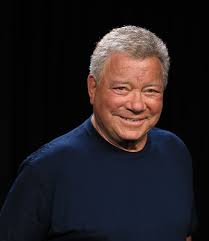
William Shatner (b. 1931) – Acting & Pop‑Culture Icon
Contribution: Originated the role of Capt. James T. Kirk in Star Trek; Emmy‑ and Golden‑Globe‑winning star of Boston Legal; author, recording artist, and long‑time philanthropist.
Time Period: 1950s – present
Impact: William Shatner, proud of his Jewish Montreal roots, rocketed to fame in 1966 as Captain Kirk on Star Trek, a role whose optimism and moral leadership helped turn the series into a global touchstone for scientists, engineers, and storytellers. Over six decades he has remained a pop‑culture mainstay, reprising Kirk in seven films, earning Emmys for The Practice and Boston Legal, and even soaring into space on Blue Origin in 2021, proving that age nor nationality limits artistic or scientific exploration. Leveraging that stature, Shatner has partnered with the Jewish National Fund to raise millions for therapeutic riding centers serving Israeli, Palestinian, and Jordanian children with disabilities—demonstrating how a Canadian entertainment icon can unite on‑screen influence with real‑world humanitarian impact, all without divisive rhetoric.
Jason Reitman (b. 1977) – Filmmaking & Screenwriting
Contribution: Director of Juno, Up in the Air, Ghostbusters: Afterlife.
Time Period: 2000s–present

Impact: Jason Reitman built upon his father’s legacy while forging his own path in indie filmmaking. His film Juno became a landmark of indie cinema, winning Academy Awards and influencing modern coming-of-age storytelling. His direction of Ghostbusters: Afterlife connected multiple generations of fans, proving his ability to merge nostalgia with modern storytelling.
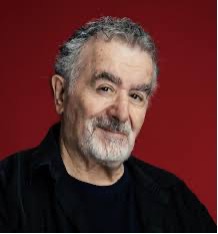
Saul Rubinek (b. 1948) – Acting & Directing
Contribution: Actor known for roles in Unforgiven, Warehouse 13, and True Romance.
Time Period: 1980s–present
Impact: Saul Rubinek has built a career playing intelligent, often eccentric characters in both television and film, bringing depth and nuance to Jewish representation in Hollywood. One of his most memorable roles was as Artie Nielsen in Warehouse 13, a hit science-fiction series that blended adventure, history, and mystery—influencing a new wave of sci-fi storytelling. His performance as a morally complex movie producer in True Romance (1993) is considered one of Quentin Tarantino’s best-written roles. As a Canadian actor and director, Rubinek has helped create space for Jewish characters in mainstream and genre entertainment while supporting independent Canadian filmmaking.
Jay Baruchel (b. 1982) – Acting & Screenwriting
Contribution: Star of How to Train Your Dragon, This is the End, Goon.
Time Period: 2000s–present

Impact: Jay Baruchel has been a major force in animated film, voicing Hiccup in How to Train Your Dragon, one of DreamWorks’ biggest franchises. His influence extends to sports films, comedy, and Canadian filmmaking, making him a proud advocate for Canadian storytelling and Jewish identity in Hollywood.
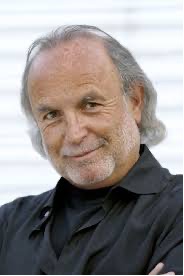
Avi Arad (b. 1948) – Video Games & Film Production
Contribution: Former CEO of Marvel Entertainment, producer of Spider-Man, X-Men, and Iron Man films.
Time Period: 1990s–present
Impact: Avi Arad played a crucial role in turning Marvel Comics into a multi-billion-dollar media empire. As one of the key figures in the Marvel Cinematic Universe’s (MCU) early success, he helped adapt Spider-Man, X-Men, and Iron Man into blockbuster films, proving that superhero movies could be taken seriously. Beyond film, Arad expanded Marvel into gaming, overseeing early video game adaptations of Spider-Man (2000), X-Men Legends, and Marvel Ultimate Alliance. His vision transformed comic book properties into global multimedia franchises, influencing how games, movies, and television cross over in modern entertainment.
Sam Raimi (b. 1959) – Filmmaking & Gaming Adaptations
Contribution: Director of Evil Dead, Spider-Man Trilogy, Doctor Strange in the Multiverse of Madness.
Time Period: 1980s–present

Impact: Sam Raimi revolutionized both horror and superhero filmmaking. His Evil Dead series defined low-budget horror, influencing games like Resident Evil and Dead by Daylight. Later, his Spider-Man Trilogy (2002–2007) became a turning point for superhero films, paving the way for the Marvel Cinematic Universe (MCU). His influence extended to video game adaptations, helping bridge the gap between interactive and cinematic storytelling. Raimi’s signature mix of humor, horror, and stylized action has shaped modern gaming and film, influencing game developers and filmmakers alike.

Stephen J. Dubner (b. 1963) – Game Theory & Entertainment
Contribution: Co-author of Freakonomics, applying economic theories to gaming and entertainment.
Time Period: 2000s–present
Impact: Stephen J. Dubner revolutionized the way people understand economics, statistics, and decision-making, which has had a profound impact on game development. Freakonomics introduced game theory and behavioral economics to a wider audience, influencing video game designers to incorporate more psychological and economic models into gaming experiences. His work has been used to analyze gaming microtransactions, AI decision-making, and player behavior, shaping modern gaming economics.
Steven Silver (b. 1968) – Documentary Filmmaking
Contribution: Director of The Bang Bang Club, producer of 13th and other social documentaries.
Time Period: 1990s–present

Impact: Steven Silver has used documentary filmmaking to highlight political conflicts, media ethics, and social justice issues, influencing how video games and interactive media tackle real-world topics. His work on 13th (a documentary about racial inequality in the U.S.) has been used as a reference in serious games and educational gaming projects that address social justice. His storytelling has pushed the boundaries of narrative-driven content, proving that games and films can be powerful tools for activism and education.
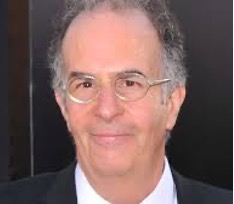
Daniel Goldberg (1952–2014) – Film & Gaming Writing
Contribution: Producer and writer of Space Jam, Stripes, and gaming adaptations.
Time Period: 1980s–2010s
Impact: Daniel Goldberg played a major role in merging sports, animation, and gaming culture into mainstream entertainment. His work on Space Jam helped bring video game aesthetics into movies, influencing modern films like Ready Player One and Free Guy. As a writer for gaming-related film adaptations, he helped studios transition popular franchises into multimedia empires. His ability to blend humor, action, and gaming culture made him a pioneer in video game-influenced storytelling.
Steve Levitan (b. 1962) – Television Producing
Contribution: Co-creator of Modern Family, executive producer.
Time Period: 2000s–present
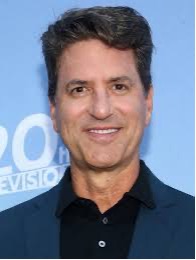
Impact: Steve Levitan reshaped television comedy with Modern Family, bringing mockumentary-style sitcoms to a mainstream audience. His show introduced diverse storytelling techniques, which have been adopted by video game narratives, virtual reality experiences, and interactive media. The way Modern Family used multiple viewpoints, cutaways, and real-world references has influenced storytelling in games like The Last of Us and Life is Strange. His success in television has crossed into gaming and interactive media, making him one of the most influential figures in entertainment today.

Jordan Mechner (b. 1964) – Video Game Development
Contribution: Creator of Prince of Persia, one of the most influential platformer franchises in gaming.
Time Period: 1980s–present
Impact: Jordan Mechner is one of the most important figures in game design, having created Prince of Persia, a game that inspired parkour mechanics in modern gaming. His innovative approach to cinematic platforming and realistic character animation set the standard for action-adventure games, influencing titles like Assassin’s Creed and Tomb Raider. Mechner’s impact extends to video game storytelling, where he introduced complex narratives and time-based mechanics, changing how game developers approach player immersion and cinematic cutscenes.
Victor Lucas (b. 1970s) – Gaming Journalism
Contribution: Founder of Electric Playground, one of the first dedicated video game TV shows.
Time Period: 1990s–present

Impact: Victor Lucas is a pioneer of gaming journalism, having created Electric Playground, a show that helped legitimize gaming culture in mainstream media. His work has influenced modern video game critique, analysis, and esports commentary, helping games be taken seriously as an art form. Through interviews, reviews, and industry coverage, Lucas provided a platform for Canadian game developers, shaping how gaming media evolved in the internet age.
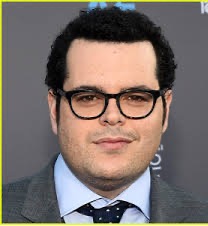
Josh Gad (b. 1981) – Voice Acting & Film
Contribution: Voice of Olaf in Frozen, Broadway star, and gaming enthusiast.
Time Period: 2010s–present
Impact: Josh Gad has become one of the most recognizable voice actors in modern animation, bringing humor and warmth to animated characters. His work in Frozen made Olaf one of Disney’s most beloved characters, influencing family-friendly storytelling. He has also been a lifelong video game fan, participating in gaming culture and advocating for stronger storytelling in interactive entertainment.
Leonard Cohen (1934–2016) – Singer-Songwriter & Poet
Contribution: One of the most celebrated singer-songwriters and poets of the 20th century, known for songs like Hallelujah and Suzanne.
Time Period: 1960s–2010s
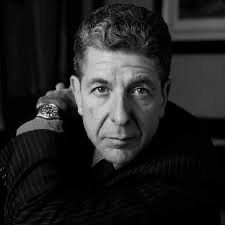
Impact: Leonard Cohen blended folk, rock, and literary influences to create deeply philosophical and poetic songs. His lyrics explored themes of love, spirituality, politics, and Jewish mysticism, making him a unique figure in both literature and music. Hallelujah, one of his most famous compositions, has been covered over 300 times, becoming a global anthem. Cohen’s influence spans multiple generations, inspiring artists like Bob Dylan, U2, and Nick Cave. His work remains revered worldwide, shaping the singer-songwriter tradition and redefining poetic lyricism in popular music.
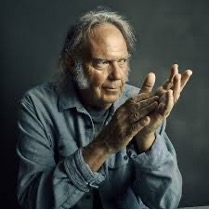
Neil Young (b. 1945) – Rock & Folk Legend
Contribution: One of the most influential rock musicians in history, with a career spanning six decades.
Time Period: 1960s–present
Impact: While often associated with folk rock and country, Neil Young’s influence extends into grunge, punk, and experimental rock. His introspective songwriting and socially conscious lyrics have shaped generations of musicians, and his guitar work has been pivotal in defining alternative rock and folk music. Albums like Harvest and After the Gold Rush have become classics. Young’s Jewish heritage (from his mother’s side) was not widely publicized, but his music often reflects themes of identity, social justice, and activism, making him a crucial figure in political and protest music.
Drake (b. 1986) – Hip-Hop & R&B Superstar
Contribution: One of the most successful and influential hip-hop artists of all time, pioneering the fusion of rap, R&B, and pop.
Time Period: 2000s–present

Impact: Drake, born Aubrey Drake Graham, grew up in Toronto’s Jewish community and famously had a Bar Mitzvah, later referencing his Jewish heritage in songs like HYFR. He reshaped modern hip-hop by blending introspective lyrics, melodic rap, and emotional vulnerability, a style that has influenced artists worldwide. With multiple Grammy Awards, record-breaking albums, and over 170 million records sold, Drake has transformed mainstream music, bringing Canadian rap to global prominence and influencing the new generation of artists.

Geddy Lee (b. 1953) – Rock & Progressive Music Innovator
Contribution: Lead singer, bassist, and keyboardist of Rush, one of the most technically proficient rock bands of all time.
Time Period: 1970s–present
Impact: Geddy Lee, born to Holocaust survivors, became a pioneer of progressive rock, blending complex musical structures, virtuoso bass playing, and philosophical lyrics. Rush’s albums, such as 2112 and Moving Pictures, have influenced progressive metal, rock, and experimental music, inspiring bands like Metallica, Dream Theater, and Primus. His impact extends beyond music—Lee has raised awareness about Jewish history, advocating for Holocaust education and refugee rights.
Alanis Morissette (b. 1974) – Alternative Rock & Female Empowerment
Contribution: Best known for her multi-platinum album Jagged Little Pill (1995), which revolutionized female-driven alternative rock.
Time Period: 1990s–present

Impact: Alanis Morissette reshaped alternative rock, breaking barriers for female artists in a male-dominated industry. Jagged Little Pill sold over 33 million copies, making it one of the best-selling albums of all time. Songs like You Oughta Know and Ironic blended raw emotional storytelling with rock energy, influencing artists like Pink, Avril Lavigne, and Florence Welch. Morissette’s Jewish identity, through her mother’s lineage, has been part of her personal and artistic journey, and her music has remained a beacon of emotional honesty and empowerment.

Randy Bachman (b. 1943) – Rock & Classic Rock Pioneer
Contribution: Founding member of The Guess Who and Bachman-Turner Overdrive (BTO), two of Canada’s most successful rock bands.
Time Period: 1960s–present
Impact: Randy Bachman played a pivotal role in shaping Canadian rock music, writing some of the most iconic rock anthems, including American Woman (with The Guess Who) and Takin’ Care of Business (with BTO). His blend of blues, hard rock, and pop elements helped define 1970s classic rock, influencing artists such as Rush, Nickelback, and Foo Fighters. Bachman’s Jewish heritage, through his maternal lineage, has been an important part of his identity, and he has often spoken about the values of perseverance and dedication instilled in him by his Jewish upbringing. He remains a cultural ambassador for Canadian music, hosting radio shows and documentaries that explore Canada’s rock legacy.
Nelly Furtado (b. 1978) – Pop & Latin Fusion Pioneer
Contribution: Grammy-winning pop star known for her genre-blending music.
Time Period: 2000s–present

Impact: While Nelly Furtado’s Jewish heritage comes from her father’s side, she has proudly represented Canada’s diverse cultural and musical landscape. Her ability to blend pop, Latin, and world music has influenced countless artists. With hits like Promiscuous and Say It Right, she was a key figure in 2000s pop culture, shaping the evolution of dance-pop and Latin-infused mainstream music. Her collaborations with artists like Timbaland, Juanes, and Drake helped bridge international musical styles, making her a global icon.

Norman Jewison (b. 1926 – d. 2022) – Filmmaker & Director
Contribution: Acclaimed filmmaker behind Fiddler on the Roof, Moonstruck, and In the Heat of the Night.
Time Period: 1950s–2020s
Impact: Norman Jewison was one of Canada’s most celebrated directors, known for tackling themes of social justice, race, and Jewish identity. His adaptation of Fiddler on the Roof (1971) brought Jewish culture and storytelling to a global audience, influencing musical theater and film. His Oscar-winning films like In the Heat of the Night addressed civil rights issues, proving that Hollywood could drive social change. Jewison also founded the Canadian Film Centre, supporting young filmmakers and the growth of Canada’s film industry.
Steven Page (b. 1970) – Rock & Alternative Music
Contribution: Founding member and lead singer of Barenaked Ladies.
Time Period: 1980s–present

Impact: Steven Page co-founded Barenaked Ladies, one of Canada’s most beloved rock bands, known for hits like One Week and If I Had $1,000,000. His witty lyricism, humor, and blend of folk-rock and alternative music made the band a cultural phenomenon in the 1990s and 2000s. As a solo artist, Page continues to explore Jewish identity, mental health awareness, and musical storytelling, influencing Canadian rock and pop music. His impact extends beyond music, as he is also an advocate for mental health issues, breaking stigma around depression and anxiety in the entertainment industry.
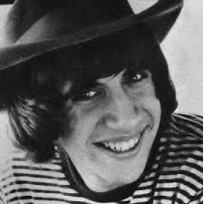
Zal Yanovsky (b. 1944 – d. 2002) – Psychedelic Rock & Folk
Contribution: Founding member of The Lovin’ Spoonful, known for Do You Believe in Magic?.
Time Period: 1960s–2000s
Impact: Zal Yanovsky was a pioneer of folk-rock and psychedelic music, co-founding The Lovin’ Spoonful, a band that influenced The Beatles, The Byrds, and the 1960s counterculture movement. Their hit songs, including Do You Believe in Magic? and Daydream, helped shape folk-pop fusion, a genre that later influenced bands like Fleetwood Mac and The Eagles. After retiring from music, Yanovsky became a renowned Canadian chef and restaurateur, adding to his cultural legacy in Canada. His work remains a major influence on folk-rock and classic rock musicians today.

Ivan Reitman (1946–2022) – Filmmaking & Producing
Contribution: Director of Ghostbusters, Stripes, Kindergarten Cop.
Time Period: 1980s–2010s
Impact: Ivan Reitman was a pioneer of blockbuster comedy, directing Ghostbusters, one of the most successful comedy films ever made. His innovative mix of comedy, action, and special effects influenced generations of filmmakers. As a producer, he helped launch careers (including his son, Jason Reitman), and shaped Hollywood’s approach to action-comedy storytelling. His work continues to inspire the gaming industry, with Ghostbusters games and adaptations maintaining cultural relevance decades later.

